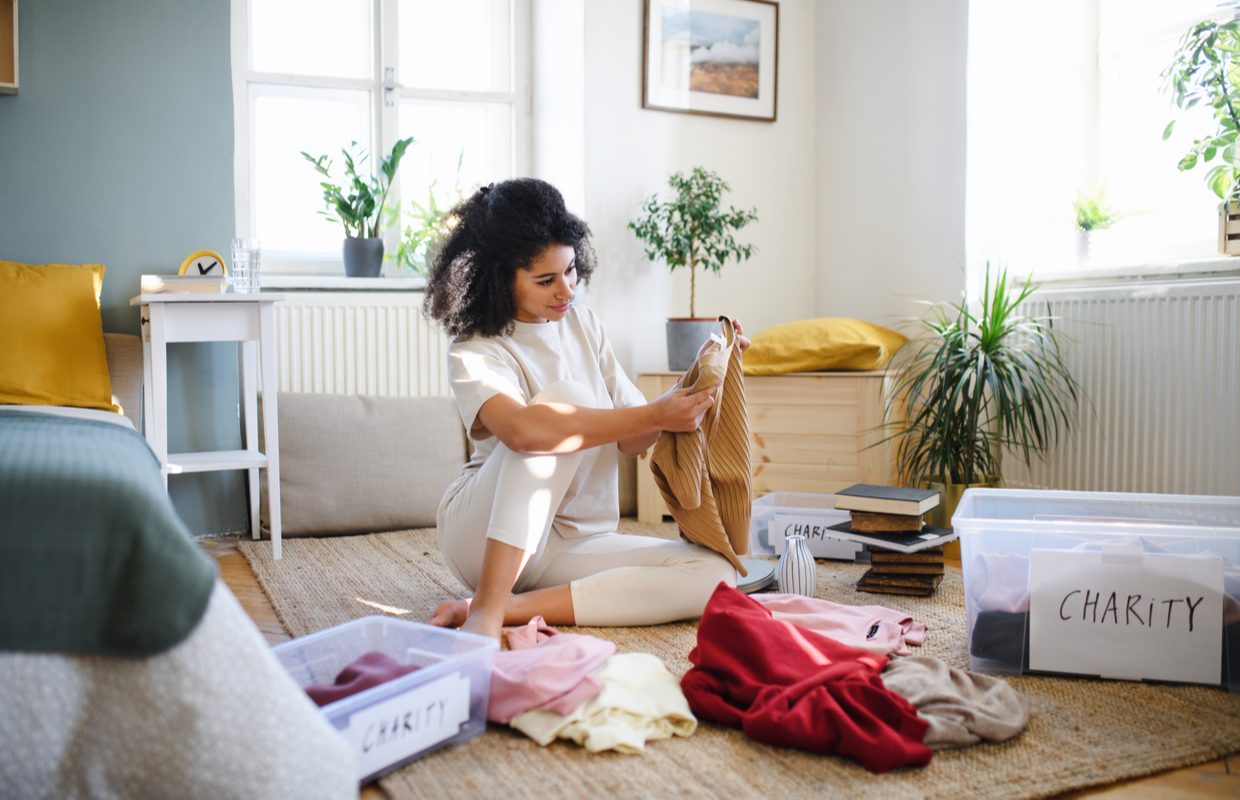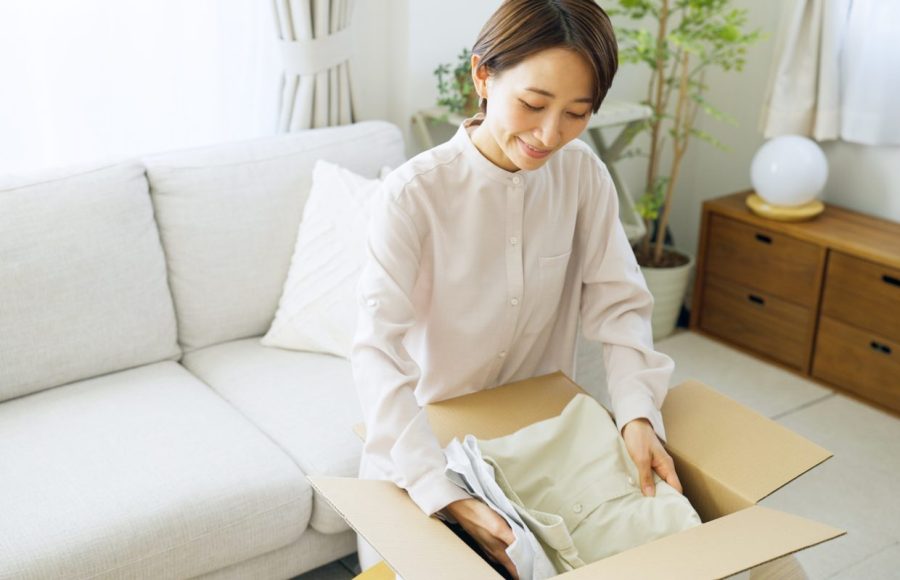Reduce your stress levels and feel in control of your world with some quick decluttering tips from Livi John of Sorting Out Suffolk…
Looking to get your home more organised, but you have no clue where to start? It’s easy to feel overwhelmed and uninspired when trying to declutter your entire home at once. However, with some quick tips and adjustments, decluttering can be a great way to reduce your stress levels. So, simply start by choosing one drawer, one cupboard or one surface, then follow these simple steps for a tidier home in just 10 minutes a day…
1. Take everything out or off
Remove all the items and then sort things into three piles: one for keeping, one for recycling and one for donating/selling. With regards to selling, Livi advises only doing so if you’ve sold things before.
‘Take pictures immediately of each thing and have an area where all selling items will be temporarily stored. For one client, this was the boot of her car. She was given a month; if they were not sold by then, they were to be driven to the charity shop,’ says Livi.

2. Ask the right questions when decluttering
Ask yourself these questions when considering whether to keep an item:
- Is it relevant to my current life?
- Does it create a positive emotion?
- Is it useful or beautiful?
If you answer no to any of the above questions, the item goes!
3. Use large bags to declutter as you go
If you happen to have large Ikea-type bags, these are great for initial sorting. ‘Label each one up and go for it! They are also great for the dump as you can tip them straight into the skip; I use one for rigid plastics, another for cardboard, electrical things etc,’ says Livi. Know what your local tip will take before starting your declutter to make that final process much easier.
4. Organise the things you keep
Only once you are left with what’s being kept should you begin to organise it. ‘This is the fun part!’ says Livi. ‘Your home cannot be tidy if none of your things has a home to start with. I’m a huge fan of boxes within cupboards or drawers. I use shoeboxes – you could of course use prettier storage boxes, but I really like reusing what we already have. If you can easily see what you own, you avoid buying duplicates.’
5. Have a processing area when decluttering
‘In my house this is space by the side of my wardrobe, which houses everything we no longer need. Every few months I sort through it and donate, recycle, pass on or sell. It’s not always the right time to decide what to do with things so the processing or holding area gets it out of the way for the time being,’ says Livi.

6. Have a bag for charity and a bag for rags
Charity shops will take clean clothes that aren’t suitable for selling to sell for rags. You can even donate old pillows and duvets as they get money per kilo for those. Although they may not be open at present, you can still get things ready for when they are.
7. Make mundane tasks habitual
Take the decision making out of daily chores. This saves time and headspace. Examples include:
- Getting dirty washing ready the night before.
- Loading and unloading the dishwasher at the same time.
- Putting things away the moment you get home i.e. shoes, coats, bags.
- Do your online grocery on the same day each week.
- Go through diaries on Saturday mornings to make sure you have everything you need for the week ahead and time to sort it out if you don’t.
8. Sort out wires, cables and plugs
Those that you can’t identify, bag up and date for 6-12 months in the future. Any wires still left unneeded after that should be recycled. Wires you can identify put a sticky label on and write on their use. Make sure any new wires that come into the house are labelled straight away.
9. Declutter your books
If you find it hard to part with books, do a short review of them or jot down the most relevant points, all in a nice new notebook, so then you can part with the actual books. We mostly we don’t read books again but think we will.
10. Have a ‘random’ recycling box
Make space in a cupboard or utility room for a box for recycling things that can’t go into your regular rubbish, such as batteries, light bulbs, hard plastics, bits of metal etc, and get in the habit of popping to the tip every month where they can be recycled.

11. Organise your cupboards with old boxes
Put empty shoeboxes or Amazon boxes into all your utility room cupboards or kitchen cupboards to make it easy to slide things in and out. Fill these boxes with your cleaning bottles and cloths. It also helps to box together packets of things in kitchen cupboards.
12. Use sticky hooks
Put these on the backs of kitchen and utility room cupboard doors to hang your dustpan and brush and other items. You can also use these in the bedroom to hang necklaces and other jewellery.








